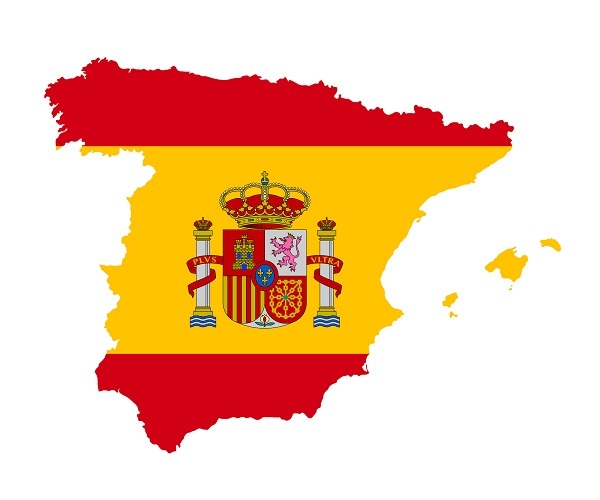🕒 Estimated Reading Time: ~4 minutes
This article is translated from our Spanish site, Franquicia Directa. The original can be seen here.

In the last few years, Spain has become one of the favorite destinations for franchises worldwide. Though at the moment the country exports more franchises than it imports, more and more foreign companies are focusing on Spain as an area to develop their brand and also as a means to access other European markets.
The major motives that bring international franchisors to want to introduce their brands into Spain are:
1. The country’s economy, where franchising has been demonstrating its resilience during periods of financial instability,
2. The consumers’ positive frame of mind who are looking to get back their standard of living which is based on outdoors social activities.
Franchising in Spain
According to the most recent study by the Spanish Association of Franchisors (AEF - Asociación Española de Franquiciadores), there are 1,381 franchises operating on Spanish soil. Of which, 249 are of foreign origin.
- 18.1% franchises come from a total of 26 countries
- 56 brands are from France,
- 46 are from the USA,
- 44 are from Italy,
- 16 are from the UK,
- 14 are from Germany and Portugal.
All these brands have been trading successfully in Spain for a long time, because they have managed to adjust to the needs and tastes of Spanish consumers.
The following list ranks franchise industries in Spain according to employment generated by industry:
1. Food (supermarkets, delis and other food shops)
2. Restaurants and hotels
3. Fast food
4. Beauty
5. Transports (services)
And according to the number of franchises by industry:
1. Fashion with 242 brands
2. Restaurants with 207 brands
3. Beauty with 113 brands
Franchise Expansion in Spain
If you’re thinking about franchising your brand in Spain, you will likely face more legal barriers to start the business than in other countries. It's suggested that incoming franchisors go with the product/trade name franchising format rather than business format franchising, as product/trade name franchising can more easily be transferred with the legal differences between your country of origin and Spain.

Santiago Barbadillo, President and Founder of the Spanish franchise consulting company Barbadillo y Asociados, states that when they’re planning a big investment in the country, a major part of the franchisor's efforts to enter the Spanish market is getting a master franchisee.
This master franchisee should be a Spanish national, be a resident in Spain, or have a good knowledge of the country’s managerial industry. He/she will have to know the country’s regulations and systems that govern the franchising industry. Barbadillo adds that out of all the brands that decide to enter the Spanish market, a high percentage belong to the restaurant and hotel sector. The master franchises in this industry usually require a high level of investment, which will reduce the number of qualified candidates to become master franchisees.
According to Barbadillo, when they arrive in the country, international franchisors mostly seek to establish their franchise in the cities with a high number of inhabitants, like Madrid and Barcelona. The coastal areas are also popular destinations for foreign investors who want a first point of contact with the industry.
Financing Franchise Expansion in Spain
Some banks and financial establishments offer specific programs to develop franchises and to create small businesses. The page Emprende Pyme (in Spanish) will offer you a lot of information about the way to get financial assistance in the Spanish corporate world.
Also on our site franquiciadirecta.com, you’ll find a section dedicated to financial assistance (in Spanish).
On the Spanish Ministry of Industry, Commerce and Tourism website, you’ll find all the financial aid that the Spanish government offers to individuals and companies to help them open their first business or expand their existing one.
Regulations for Franchises in Spain
In Spain, the regulating entity for franchises is the Registry of Franchisors, which belongs to the Ministry of Economy and Competition and more specifically, to the General Director of Retail Commerce.
Franchising is ruled by the Royal Decree 201/2010 of 26th February regarding the commercial activity of franchising and data communication on the Spanish Registry of Franchisors.
Article 62 of the Retail Commerce Regulation Act 7/1996 of the 15th January. There are also other laws applicable such as the one referring to disloyal competition: Regulation (EU) number 330/2010 of the Commission of the 20th April; guidelines for vertical restrictions.
Some of the most important points covered by these laws are as follows:
Article 62 of the Retail Commerce Regulation Act 7/1996 establishes the obligation of the franchisors to supply the pre-contractual documentation to the candidate at the latest 20 days before signing the agreement or exchanging funds.
Article 3 of the Royal Decree 201/2010 (specifying the bill on Retail Commerce Act 7/96) establishes the minimum content of pre-contractual information to:
- Main data for the franchisor’s identification
- Description of the franchise activity
- Content and main characteristics of the franchise
- Structure and development of the franchise network
- Essential elements of the franchise agreement
It is important to note that the obligation for the franchisor to register to the Registry of Franchisors was cancelled in April 2018.
Finally, Eduardo Abadía, Manager of the AEF, recommends contacting your own country’s embassy in Spain to receive further information on the process of establishing your franchise in Spain.














